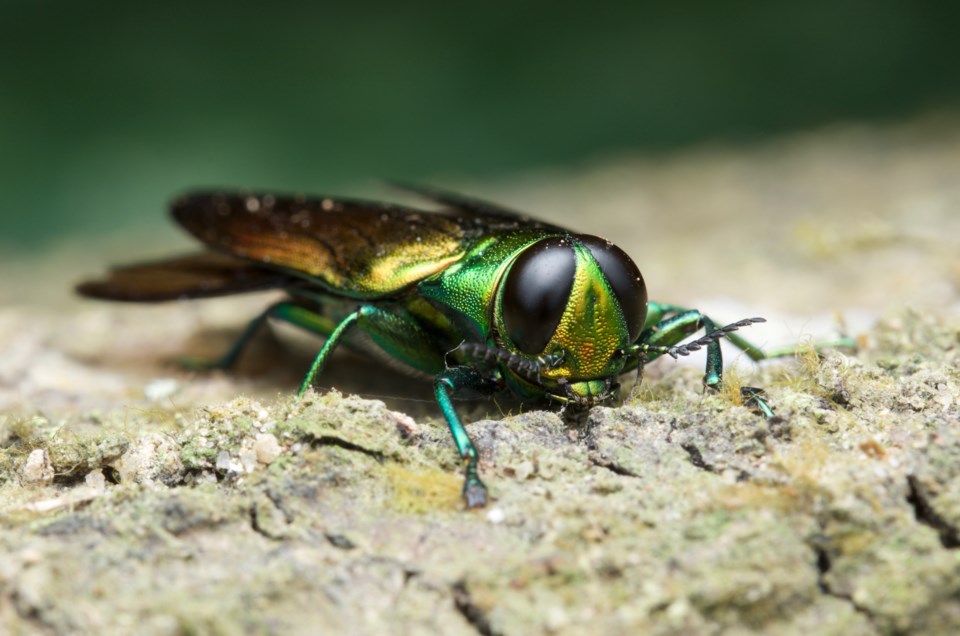The emerald ash borer, an invasive wood‐boring pest of ash trees, is continuing to spread throughout Texas, and now throughout Collin, Dallas, Denton and other counties.
According to the Texas A&M Forest Service, native to eastern Asia, the emerald ash borer was unknown in North America until 2002, when it was discovered in Detroit. Since then, the borer has spread to 36 states, including Texas, where it was first detected in Harrison County in 2016.
The emerald ash borer is responsible for killing millions of ash trees across the country. Ash trees are widespread in the United States, and all 16 native ash species are susceptible to attack. Ash trees with low population densities of the insect often show few or no external symptoms of infestation.
The borer was first detected in Texas in April 2016 when four adult beetles were caught and confirmed in a monitoring trap in Harrison County, just south of Karnack. Monitoring for the pest began in 2009, with detection traps strategically deployed each spring. These traps are monitored throughout the spring and summer months to capture emerald ash borer emergence and track movement.
As of June 2024, the invasive species was detected in 24 Texas counties, including Collin, Cooke, Dallas, Denton, Grayson, Harrison and others. This is the first year the ash borer was found in Collin and Grayson counties.
Spotting borer adults near an ash tree is a clear indication that it might be infested. These adults are dark green, about one-half inch long, and one-eighth inch wide, typically flying between May and June, depending on the climate. It's important to remember that ash trees in the early stages of an attack often show few or no external symptoms.
Symptoms of an infestation may include dead branches near the top of a tree, leafy shoots sprouting from the trunk, bark splits exposing S-shaped larval galleries, extensive woodpecker activity and D-shaped exit holes.
To report any symptomatic ash trees, please contact your local Texas A&M Forest Service office or call the hotline at 1-866-322-4512.
Don't miss anything Local. Sign up for our free newsletter.




